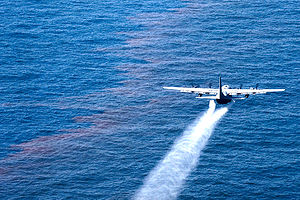Scientists who read the study said it points toward major future effects of the spill. One called its findings scary. For the study, Alabama researchers pumped water from Mobile Bay into 53-gallon drums, then added oil, dispersant or both in proportions found during the oil spill to simulate the spill's effects on microscopic water-life in the bay.
Over more than 12 weeks in 2010, BP's well spewed nearly 200 million gallons of oil into the Gulf of Mexico. The company used more than 1.8 million gallons of dispersants - more than 770,000 gallons of it at the oil's source on the ocean floor - to break up the oil into tiny droplets.
The researchers found that, within days, the numbers of plant-like phytoplankton and ciliates - plankton that use hairlike cilia to move - increased under an oil slick. But they dropped significantly in the drums with dispersant or dispersed oil, while the numbers of bacteria increased. The study was published Tuesday in PLoS ONE, one of the peer-reviewed journals in the online Public Library of Science. Read more >>

No comments:
Post a Comment